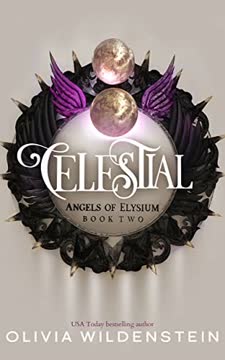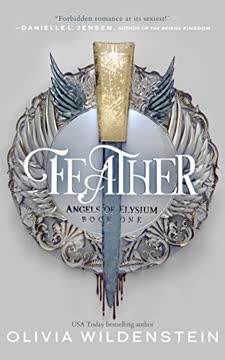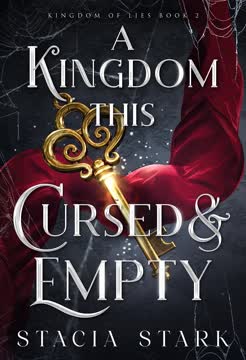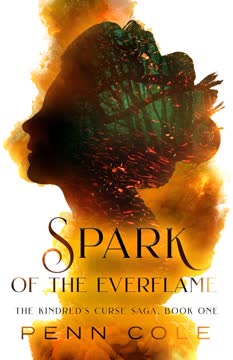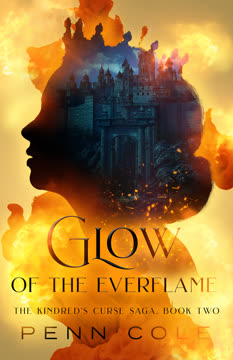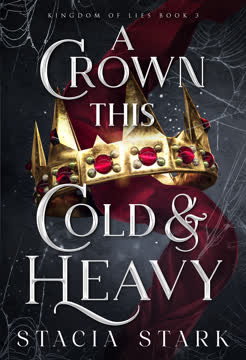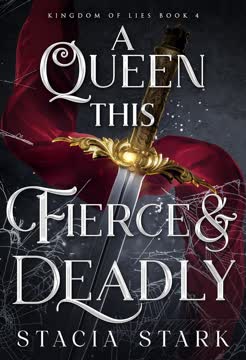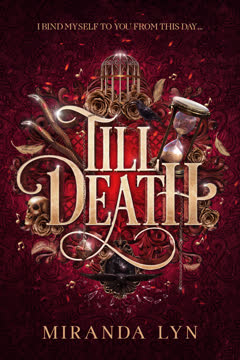Plot Summary
Paris: A Soul's Betrayal
Four years before the present, Asher, an archangel, commits an unthinkable act in Paris: he harvests the souls of two nephilim, breaking celestial law and his own moral code. This moment of weakness, set beneath a blooming cherry tree in the rain, marks the beginning of his fall from grace and the unraveling of the lives around him. The act is not just a crime against the celestial order but a betrayal of trust, setting in motion a chain of events that will haunt both Asher and those he loves. The city, once a symbol of love, becomes a graveyard of innocence and the birthplace of guilt, as Asher's decision to play god leaves him and others forever changed.
Barroom Justice, Broken Wings
In the present, Celeste, a hybrid angel with incomplete wings, navigates the human world with a sharp tongue and a vigilant eye. At a Harlem bar, she exposes a would-be predator, revealing her commitment to justice and her inability to ignore wrongdoing. Yet beneath her bravado lies pain: the loss of her best friend Leigh, the trauma of Leigh's suicide, and the guilt of not being able to save her. Celeste's wings, once a source of pride, are now a reminder of her failures and her refusal to play by the rules of her kind. Her life is a balancing act between the celestial and the mundane, haunted by memories, guilt, and redemption and the feathers she loses with every act of rebellion.
Family, Loss, and Cancer
Celeste's only family is Muriel, the woman who took her in after Leigh's death. Their bond, forged in grief, is tested when Muriel reveals she is dying of cancer. The news devastates Celeste, who is desperate to save her but powerless against the limits of mortality. The looming loss of Muriel threatens to unmoor Celeste completely, as she faces the prospect of being truly alone. The chapter is a meditation on the fragility of life, the pain of impending loss, and the desperate hope that something—anything—can be done to change fate. Celeste's love for Muriel is fierce, but love is not enough to stop the inevitable.
Bargaining with Angels
In a last-ditch effort, Celeste returns to the angelic hierarchy she swore never to enter, begging the seraphim to intervene and save Muriel. She is met with bureaucratic coldness and the reminder that angels are guardians of souls, not lives. Her pleas fall on deaf ears, and she is forced to confront the limitations of her power and the indifference of the system she once believed in. A chance encounter with a precocious child, Naya, offers a glimmer of hope and connection, but also underscores Celeste's isolation. The guild, once a place of belonging, is now a symbol of everything she has lost.
Grief, Guilt, and Feathers
Muriel's death plunges Celeste into a spiral of grief and rage. Asher, the seraphim she blames for Leigh's fate, arrives to collect Muriel's soul, reigniting old wounds. Their confrontation is raw and painful, as Celeste lashes out, blaming Asher, herself, and the world for the losses she has endured. The act of soul collection is both sacred and traumatic, a reminder of the power angels wield and the consequences of their choices. Celeste's memories, triggered by fallen feathers, force her to relive moments of kindness and regret, deepening her sense of responsibility and failure.
The Seraph's Return
Asher refuses to leave Celeste alone in her grief, inserting himself into her life under the pretense of fulfilling a promise to Leigh. His presence is both a comfort and a torment, as old resentments and unresolved feelings simmer beneath the surface. Celeste resists his attempts to guide her back to the path of ascension, determined to live life on her own terms. Their dynamic is fraught with tension, attraction, and the unspoken history that binds them. Asher's insistence on helping Celeste complete her wings is met with defiance, setting the stage for a battle of wills.
Home, Friendship, and Regret
Celeste seeks solace in her friendship with Jase, her human roommate and confidant. Their relationship is easy, filled with banter and unspoken affection, but also marked by boundaries Celeste refuses to cross. The loss of Muriel and the strain of her celestial heritage make it difficult for Celeste to fully open up, and her secrets create distance even in her closest relationships. Attempts to reconnect with her past and find meaning in the present are complicated by guilt, regret, and the ever-present threat of losing more feathers—and more people she loves.
The Cost of Secrets
As Celeste's world unravels, secrets come to light—her own, Jase's, and Asher's. The revelation of Jase's criminal activities and Celeste's angelic nature threaten to destroy their friendship. The cost of honesty is high, as each confession is met with pain, anger, and the loss of trust. Celeste's struggle to balance her need for connection with the demands of her celestial identity forces her to confront the consequences of her choices. The price of truth is measured in feathers, friendships, and the hope for redemption.
Temptation, Defiance, and Truth
The growing attraction between Celeste and Asher becomes impossible to ignore, even as the rules of their world forbid it. Their relationship is a dance of temptation and defiance, each pushing the other to confront uncomfortable truths about themselves and their place in the celestial order. Asher's confession that he saved Leigh and Jarod's souls, reincarnating them as children in the guilds, changes everything. The revelation forces Celeste to reevaluate her understanding of justice, love, and the possibility of forgiveness. Together, they begin to challenge the laws that have governed their lives.
The Channel to Paris
Celeste and Asher travel through the celestial channel to Paris, where Celeste must bury Muriel's ashes and confront the ghosts of her past. The journey is both literal and symbolic, a return to the place where everything changed. In Paris, old wounds are reopened, but new truths are also revealed. Asher's willingness to break the rules for love and redemption offers Celeste a new perspective on what it means to be an angel—and a human. The act of burial becomes an act of closure, but also a promise to fight for a better future.
Burying the Past
The burial of Muriel's ashes is a moment of profound grief and release. Celeste is forced to confront the reality of loss and the necessity of moving forward. Asher's support is unwavering, even as Celeste struggles to forgive him—and herself—for the past. Their shared pain becomes a source of strength, binding them together in a way that transcends the rules of their world. The act of letting go is not just about saying goodbye to the dead, but about making space for new beginnings and the possibility of healing.
Confessions and Consequences
Back in New York, Celeste and Asher begin to work together to help Celeste complete her wings. Their partnership is fraught with risk, as every mission brings them closer to discovery and punishment. The revelation that Leigh and Jarod have been reincarnated as children in the guilds—Naya and Adam—raises the stakes, as their existence is a direct challenge to celestial law. The hope for change is tempered by the knowledge that the cost of failure is exile, death, or worse. Every act of kindness, every feather earned, is a step toward redemption—and a step closer to the edge.
The Impossible Mission
Desperate to earn enough feathers before her time runs out, Celeste takes on increasingly difficult missions, including the reformation of a Triple—a sinner with a score of 100. The task is nearly impossible, pushing Celeste to her limits and forcing her to confront the darkest aspects of humanity and herself. The experience is harrowing, both physically and emotionally, as she is captured, tortured, and nearly killed. Asher's intervention saves her, but not before she is forever changed by the ordeal. The mission becomes a crucible, testing her resolve and her capacity for mercy.
The Price of Redemption
The aftermath of the Triple mission leaves Celeste battered but determined. The experience forces her to reevaluate her understanding of justice, punishment, and the possibility of redemption. Asher's willingness to break the ultimate taboo—burning a soul—underscores the complexity of their world and the impossibility of simple answers. The price of redemption is high, measured in pain, sacrifice, and the willingness to defy the system for the sake of what is right. Together, Celeste and Asher begin to imagine a new order, one where love and justice are not mutually exclusive.
The Guild's Judgment
As Celeste completes her wings and prepares to ascend, the celestial order moves to judge Asher for his crimes. The trial is a spectacle, a test not just of Asher's actions but of the values of the entire society. The fate of Naya and Adam hangs in the balance, as the Council debates whether to allow the existence of reincarnated nephilim in the guilds. The vote is contentious, exposing the divisions and prejudices that underlie the celestial hierarchy. The threat of exile, both literal and metaphorical, looms over everyone, as the cost of defiance becomes clear.
The Children's Fate
The trial becomes a rallying point for change, as the ophanim—teachers and caretakers of the guilds—rise in solidarity with Asher and Celeste. Their support tips the balance, forcing the Council to reconsider its position and acknowledge the possibility of redemption for all souls. The fate of Naya and Adam becomes a symbol of hope, a testament to the power of community and the importance of compassion. The victory is hard-won, but it marks the beginning of a new era, one where the rules are not set in stone and the future is open to possibility.
The Vote in Elysium
The aftermath of the trial sees the implementation of new laws and the gradual transformation of celestial society. The right to return to the guilds, the possibility of redemption for nephilim, and the recognition of soulhalves as legitimate bonds all signal a shift toward a more just and compassionate order. Resistance remains, embodied by figures like Claire and Eliza, but the tide has turned. Celeste, Asher, and their allies become agents of change, working to ensure that the mistakes of the past are not repeated. The vote in Elysium is not just a political act, but a declaration of faith in the possibility of a better world.
Ascension and Aftermath
With her wings complete, Celeste ascends to Elysium, reunited with Muriel and finally able to claim her place among the angels. Her love for Asher, once forbidden, is now celebrated, and together they build a life that honors the memory of those they have lost and the promise of those yet to come. The story ends with the next generation—Naya and Adam—beginning their own journeys, carrying forward the lessons of love, sacrifice, and hope. The cycle of loss and renewal continues, but now it is tempered by the knowledge that even in the face of death and injustice, redemption is always possible.
Characters
Celeste Moreau
Celeste is a hybrid angel, born of both verity and human blood, whose incomplete wings symbolize her refusal to conform to the rigid expectations of her kind. Fiercely independent, sharp-witted, and deeply compassionate, she is driven by a need to protect the vulnerable and right the wrongs she sees in both the human and celestial worlds. Her relationships are marked by loss—of her best friend Leigh, her surrogate mother Muriel, and the innocence she once possessed. Celeste's journey is one of self-discovery, as she learns to balance her defiance with vulnerability, her anger with forgiveness, and her desire for justice with the possibility of love. Her connection to Asher is both a source of strength and a crucible, forcing her to confront the limits of her power and the depth of her need for belonging.
Asher
Asher is an archangel whose actions in Paris set the entire narrative in motion. Once the golden boy of Elysium, his decision to break celestial law and save the souls of Leigh and Jarod marks him as both a hero and a criminal. Asher is defined by his sense of duty, his capacity for love, and his willingness to sacrifice everything for those he cares about. His relationship with Celeste is fraught with tension, attraction, and the weight of shared history. Asher's journey is one of redemption, as he seeks to atone for his mistakes and build a new order where compassion and justice are not at odds. His role as a father to Naya and his bond with Celeste reveal a depth of vulnerability and longing that belies his stoic exterior.
Muriel (Mimi)
Muriel is the human woman who becomes Celeste's family after Leigh's death. Wise, nurturing, and fiercely protective, she provides the stability and affection Celeste desperately needs. Muriel's own history is marked by trauma and resilience, having survived abuse and made difficult choices to protect those she loves. Her death from cancer is a devastating blow to Celeste, but her legacy endures in the lessons she imparts and the love she leaves behind. Muriel's presence is a reminder of the power of chosen family and the enduring impact of kindness.
Leigh
Leigh is Celeste's best friend and the catalyst for much of the story's emotional arc. Her suicide, precipitated by the loss of her wings and her love for Jarod, haunts Celeste and shapes her understanding of loss, guilt, and redemption. Leigh's soul is later revealed to have been saved and reincarnated as Naya, offering a second chance at life and the possibility of healing old wounds. Leigh's story is a meditation on the cost of love, the consequences of rigid systems, and the hope for renewal.
Naya
Naya is the reincarnation of Leigh, raised in the guild and eventually adopted by Asher and Celeste. Precocious, empathetic, and deeply sensitive, Naya becomes a symbol of hope and the possibility of redemption for even the most broken souls. Her journey from child to fledgling angel mirrors Celeste's own, as she navigates the challenges of identity, belonging, and the expectations of her world. Naya's existence challenges the laws of Elysium and forces the celestial order to confront its own prejudices.
Jase
Jase is Celeste's human roommate and confidant, whose easygoing nature and steadfast support provide a counterpoint to the intensity of her celestial life. His own struggles with addiction, crime, and self-worth mirror Celeste's internal battles, and their friendship is tested by secrets, betrayals, and the demands of their respective worlds. Jase's journey is one of redemption, as he learns to accept help, take responsibility for his actions, and find hope in the possibility of change.
Tobias
Tobias is a verity ophanim and Asher's childhood friend, whose wisdom, humor, and loyalty make him an invaluable ally. As the guardian of Adam (Jarod's reincarnation), Tobias embodies the possibility of change within the system and the importance of compassion in positions of authority. His relationship with Gabriel and his willingness to challenge the Council mark him as a force for progress and reform.
Claire
Claire is an archangel and the primary antagonist, whose commitment to the rules of Elysium is matched only by her willingness to bend them for her own purposes. Cold, calculating, and unyielding, she represents the dangers of dogma and the cost of prioritizing order over justice. Claire's actions drive much of the conflict, forcing Celeste, Asher, and their allies to fight for change in the face of overwhelming resistance.
Eliza
Eliza is a high-ranking ishim whose loyalty to Claire and the old order makes her a formidable adversary. Her willingness to manipulate, interrogate, and punish those who defy the rules underscores the dangers of unchecked authority. Eliza's interactions with Celeste and Naya reveal the personal cost of institutional cruelty and the necessity of solidarity among the marginalized.
Adam
Adam is the reincarnation of Jarod, raised in the Viennese guild by Tobias and Gabriel. His existence, like Naya's, is a challenge to the laws of Elysium and a symbol of the possibility of redemption for even the most fallen souls. Adam's journey is just beginning, but his presence offers hope for a future where love, forgiveness, and change are possible.
Plot Devices
Angelic Hierarchy and Feather System
The world of Celestial is governed by a strict hierarchy of angelic beings, each with specific roles and privileges. The feather system, which tracks good deeds and sins, serves as both a literal and metaphorical measure of worth, belonging, and progress. The accumulation and loss of feathers is a constant source of tension, driving characters to question the fairness of the system and the true meaning of redemption. The hierarchy is both a source of stability and a barrier to change, forcing characters to navigate its complexities in their quest for justice and love.
Reincarnation and Soul Bonds
The plot hinges on the possibility of reincarnation and the existence of soulhalves—souls destined to be together across lifetimes. The reincarnation of Leigh and Jarod as Naya and Adam challenges the laws of Elysium and forces the celestial order to confront its own contradictions. The bond between Celeste and Asher, revealed to be that of soulhalves, serves as both a source of strength and a catalyst for change. The device of soul bonds allows the narrative to explore themes of fate, choice, and the enduring power of love.
Trials, Votes, and Political Intrigue
The narrative structure is punctuated by trials, votes, and public debates, mirroring the political machinations of real-world systems. The use of referendums, character witnesses, and the mobilization of the ophanim as a voting bloc highlights the importance of solidarity, advocacy, and the power of collective action. The political intrigue adds layers of tension and complexity, as characters must navigate not just personal relationships but the shifting allegiances and hidden agendas of those in power.
Memory, Guilt, and Redemption
Memory—both personal and collective—is a central plot device, shaping characters' actions, relationships, and sense of self. The loss and recovery of memories, the weight of guilt, and the hope for redemption drive the emotional arc of the story. The use of feathers as repositories of memory allows for moments of reflection, revelation, and catharsis, as characters are forced to confront the consequences of their choices and the possibility of forgiveness.
Forbidden Love and Defiance
The romance between Celeste and Asher is both a personal and political act of defiance, challenging the laws that forbid their union and the existence of soulhalves. Their willingness to break the rules for the sake of love and justice becomes a model for others, inspiring change and exposing the limitations of the old order. The device of forbidden love allows the narrative to explore themes of autonomy, sacrifice, and the transformative power of connection.
Analysis
Celestial is a sweeping, emotionally charged exploration of love, loss, and the struggle for justice within a rigid, hierarchical society. At its core, the novel is a meditation on the possibility of redemption—not just for individuals, but for entire systems. Through the intertwined journeys of Celeste, Asher, and their found family, the story interrogates the cost of conformity, the dangers of dogma, and the necessity of compassion. The feather system, with its relentless accounting of good and evil, serves as both a critique of meritocracy and a metaphor for the ways we measure worth in our own world. The narrative's willingness to confront trauma, grief, and the limits of forgiveness is matched by its faith in the power of love to heal and transform. In a time when institutions often fail the vulnerable, Celestial offers a vision of solidarity, resistance, and hope—a reminder that even in the face of overwhelming odds, change is possible when we refuse to accept the world as it is and dare to imagine what it could be.
Last updated:
Review Summary
Celestial is a highly anticipated sequel that captivated readers with its engaging story, character development, and world-building. Many praised the enemies-to-lovers romance between Celeste and Asher, as well as the emotional depth and humor throughout. While some found the pacing slow at times, most reviewers were excited for the next installment. The book received overwhelmingly positive ratings, with readers particularly enjoying the expansion of the angel lore and the satisfying resolution to plot threads from the first book.
